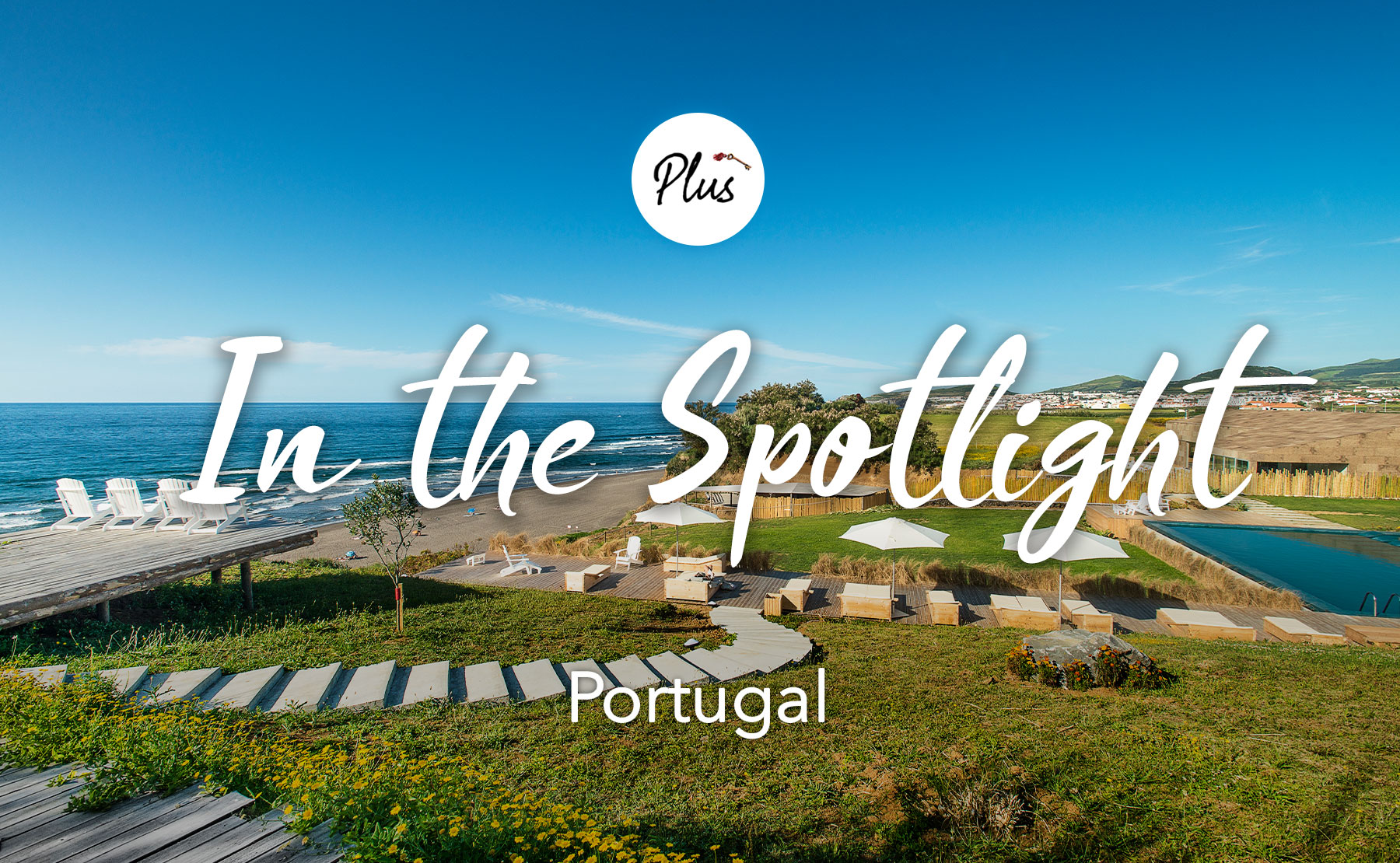
Click on each hotel to see all of the privileges they offer. Click here to learn more about Tablet Plus.
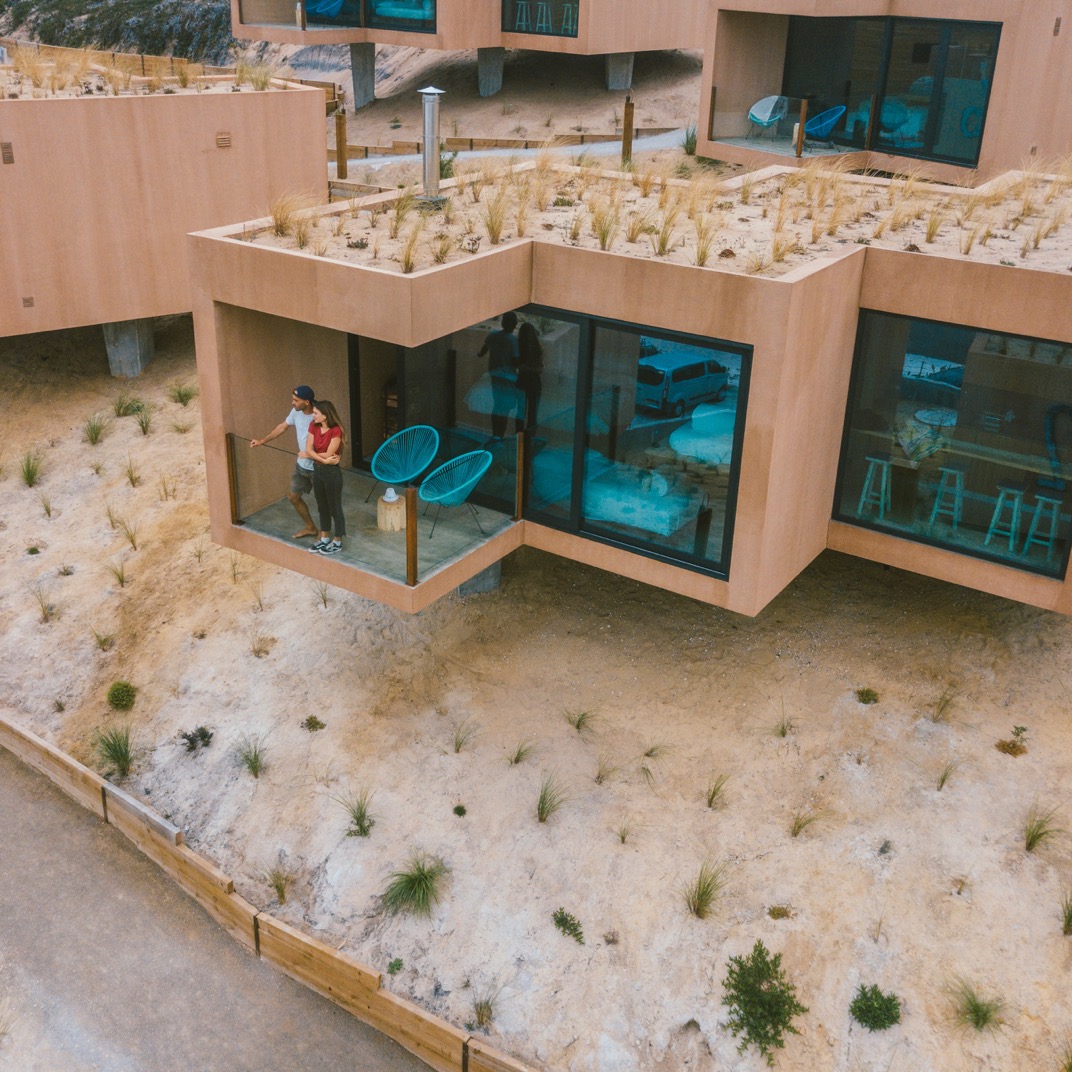
Noah Surf House Portugal
Santa Cruz
Noah Surf House in Santa Cruz sounds like the purest essence of California — and it is, in spite of the fact that it’s not on the Pacific, but the Atlantic coast of Portugal. It’s everything you’d want from a hip, laid-back, bohemian boutique surf hotel, plus a generous helping of the ultra-sleek modernist architecture and design that has somehow become the new standard among Portuguese hotels.
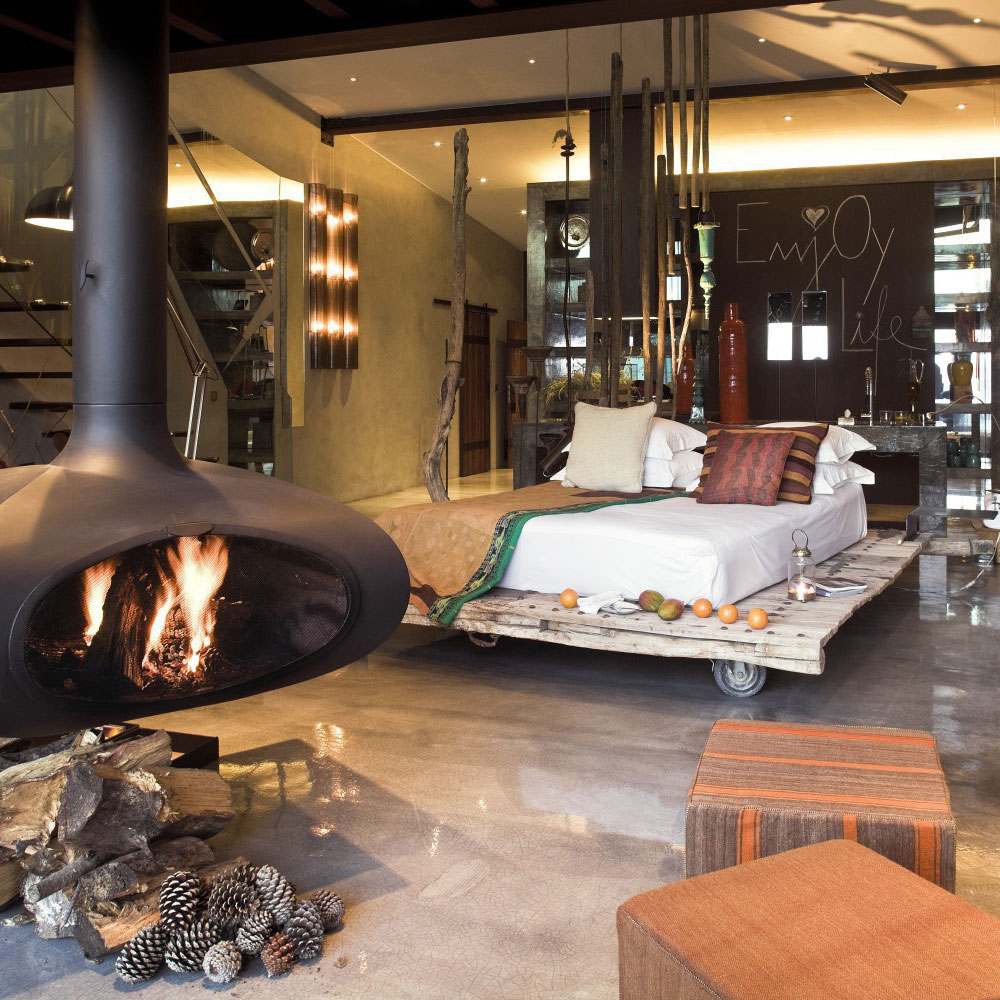
Areias do Seixo Charm Hotel & Residences
Povoa de Penafirme
Some high-end hotels make a point of being fine places to be alone. Areias do Seixo, on the other hand, is the kind of place that hosts a nightly communal bonfire on its wild — and wildly pretty — stretch of coast to the north of Lisbon. It’s not exactly a free-for-all, however — for although the wine does flow freely, given the vast expanse of farmland and ocean and dunes that’s shared by just thirteen rooms, it’s a comfortable, low-key affair, about as private a social gathering as one can have in the company of strangers.

Santa Barbara Eco-Beach Resort
Ribeira Grande
In travel terms it’s Portugal that’s perhaps the hottest destination in Western Europe at the moment — and it’s a phenomenon that’s not limited only to the mainland. The Azores, those little volcanic specks in the middle of the Atlantic, are raising their game as well, and hotels like Santa Barbara Eco-Beach Resort, on the northern shore of the island of São Miguel, are leading the charge.
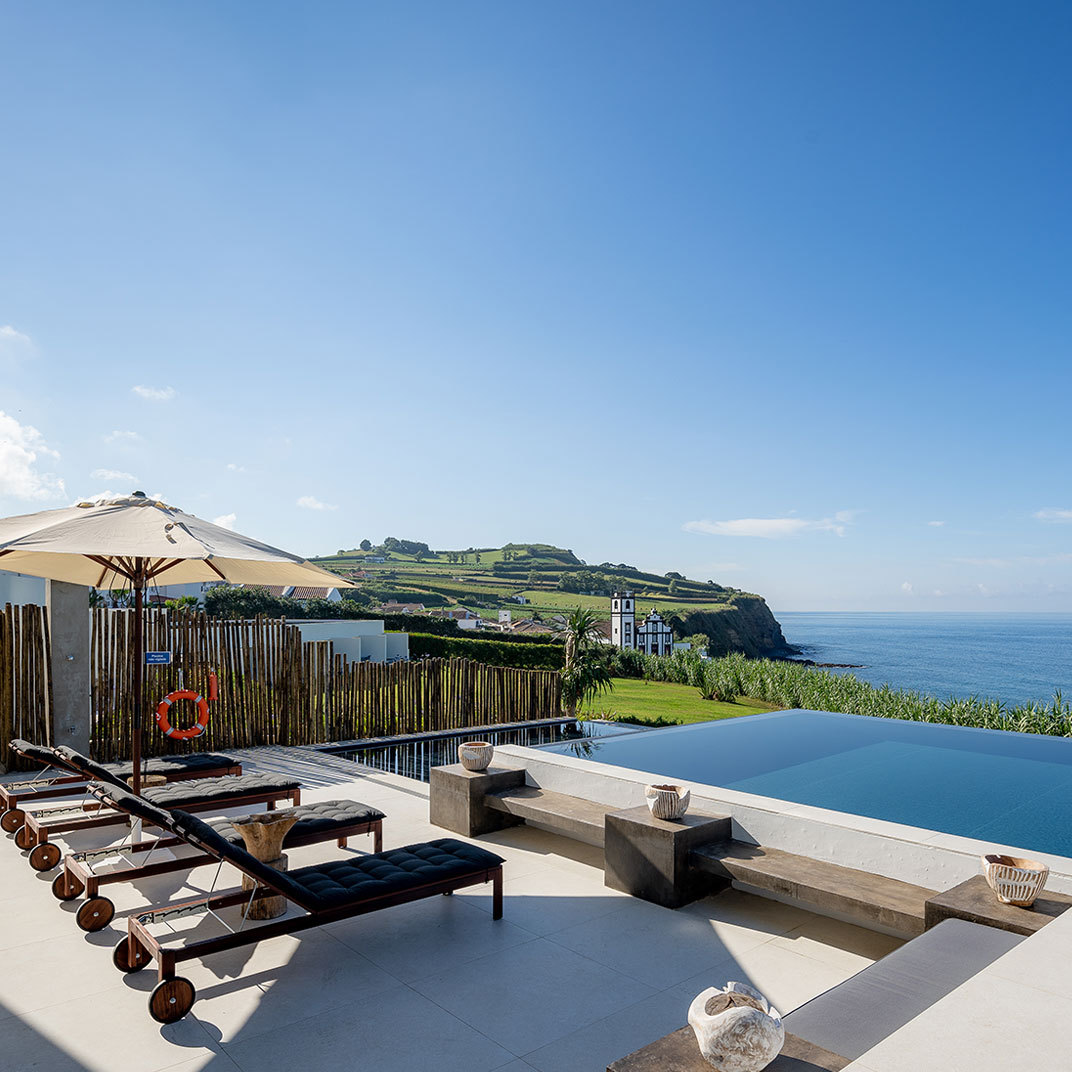
Sul Villas & Spa
Lagoa
Proof that the boom in Portuguese boutique hospitality isn’t confined to the mainland. Sul Villas & Spa is set on a cliff high above the southern shore of São Miguel Island, in the Azores, overlooking waters that owner Rodrigo Herédia knows well — he was a pro surfer before embarking on a career as a hotelier. Sul Villas, though, is less a surf shack and more a high-design boutique-style resort, one where you’ll likely spend more time in infinity pools and soaking tubs than paddling out to catch the next set.
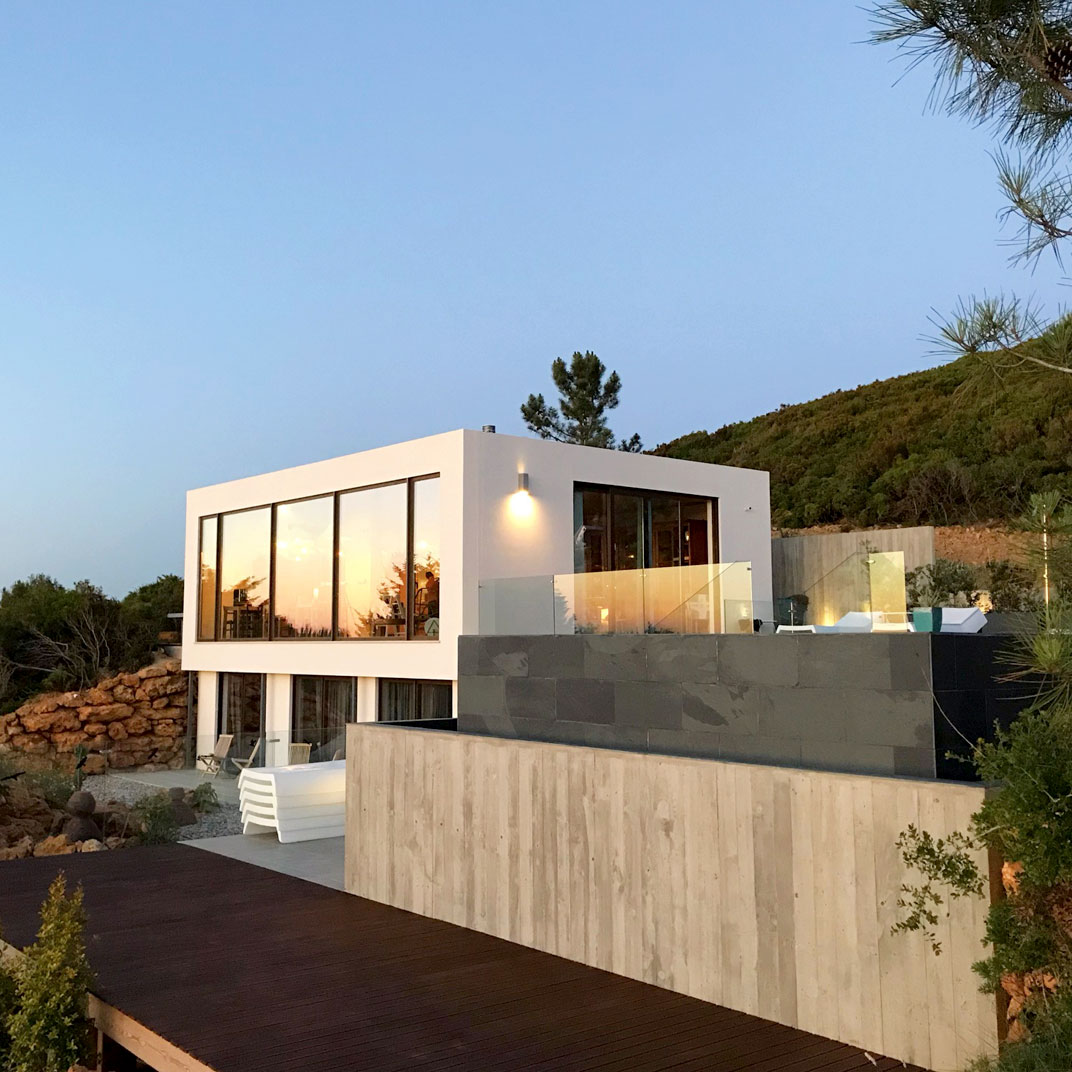
Villa Epicurea
Sesimbra
We use the word “epicurean” for anyone with a particular love of food, comfort, or other luxury — but the historical Epicurus went farther than that. For the Epicureans, earthly pleasures weren’t pursued in a gluttonous way, but were tempered with wisdom and restraint. Pure hedonism in hospitality is a cruise ship, or the Vegas strip; Epicureanism is a stunning boutique-sized eco-resort in Serra da Arrábida, just south of Lisbon, featuring an organic restaurant and excursions to nearby wineries and nature reserves. Or, to put it a little more concisely: Villa Epicurea.
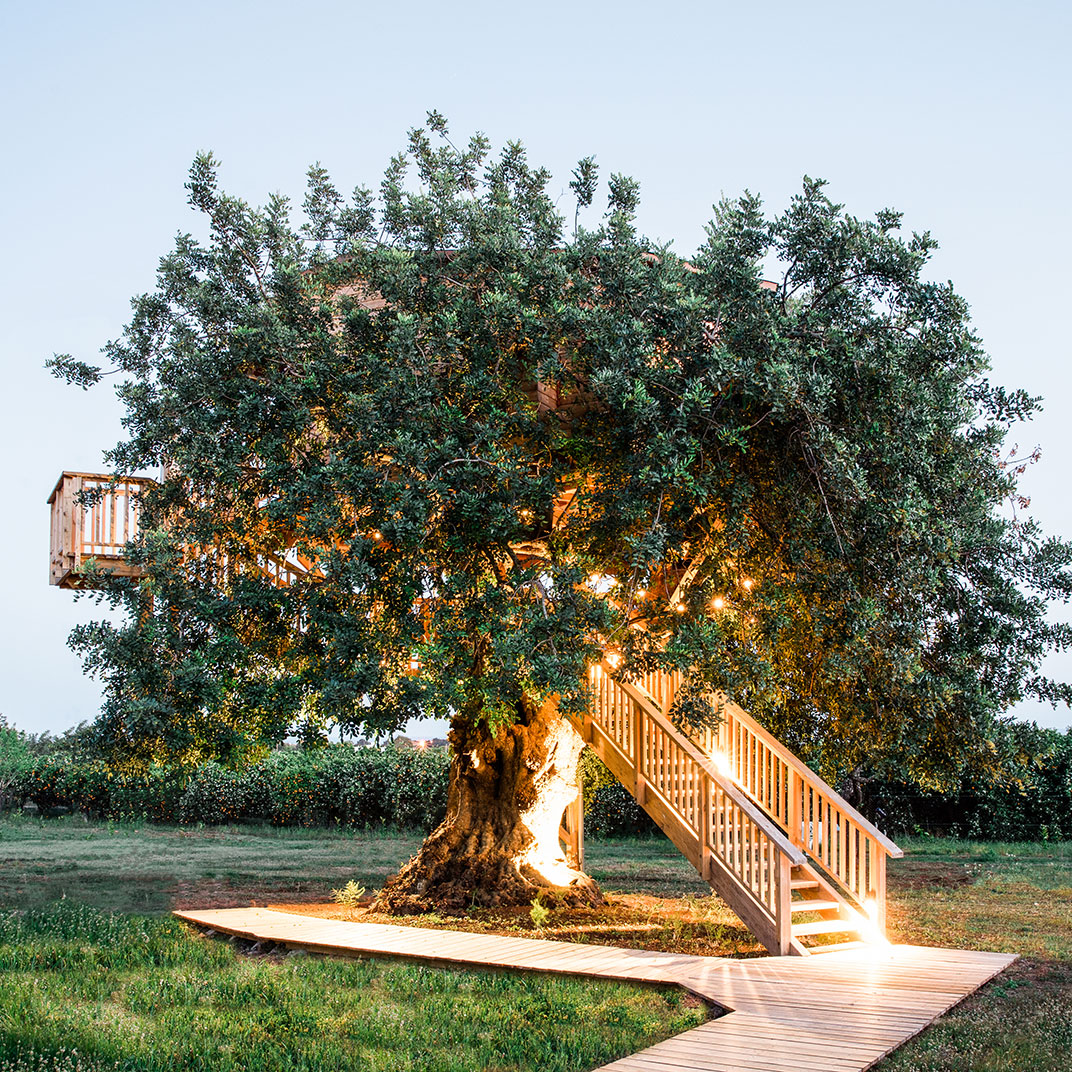
Conversas de Alpendre
Vila Nova de Cacela
The combination of design-hotel good looks and family-inn friendliness is a tough pairing to deliver, but that’s a nutshell description of Portugal’s Conversas de Alpendre. Set in the countryside of the Eastern Algarve, a mile or so inland from the Atlantic and a three-hour drive from Lisbon, it’s not just family-owned but family-run and family-made — and its effortless marriage of contemporary boutique-hotel style with locally crafted artisanal elements gives it a visual identity that’s totally unique.
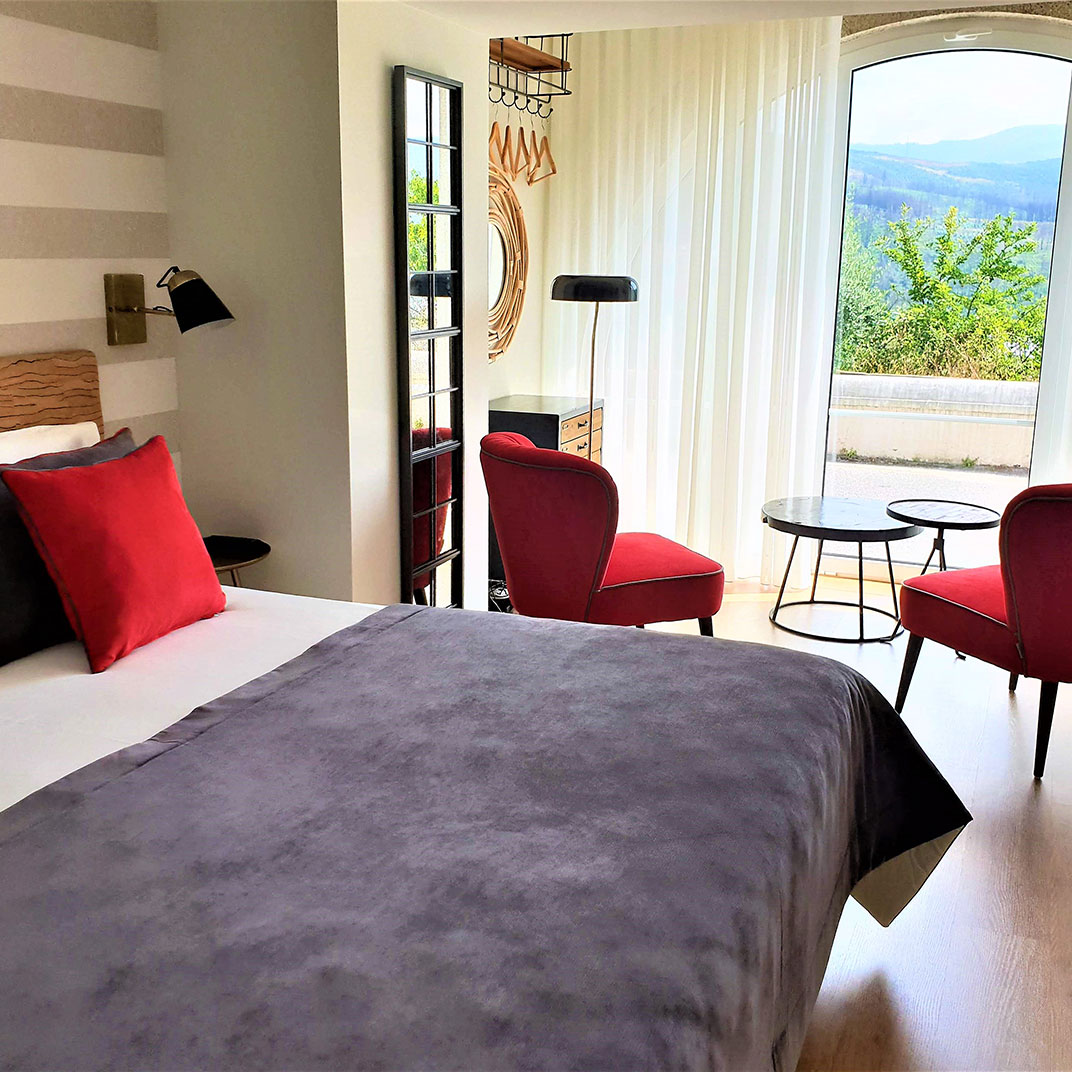
Quinta da Palmeira – Country House Retreat & Spa
Cerdeira
Just when we thought life couldn’t get any mellower for travelers in Portugal, here comes Quinta da Palmeira – Country House Retreat, an airy eight-room country house in the quiet hills between Porto and Lisbon. Surrounded by orange trees and olive groves, with the peaks of the Serra do Açor just beyond, Quinta da Palmeira makes its home in a region famous for gastronomy and open-air parties known as arraiais, with song and dance as the main activities. For many travelers it will likely be just a stopover between Portugal’s main coastal cities, which is a shame, for it takes a couple days to settle into the laid-back countryside lifestyle.
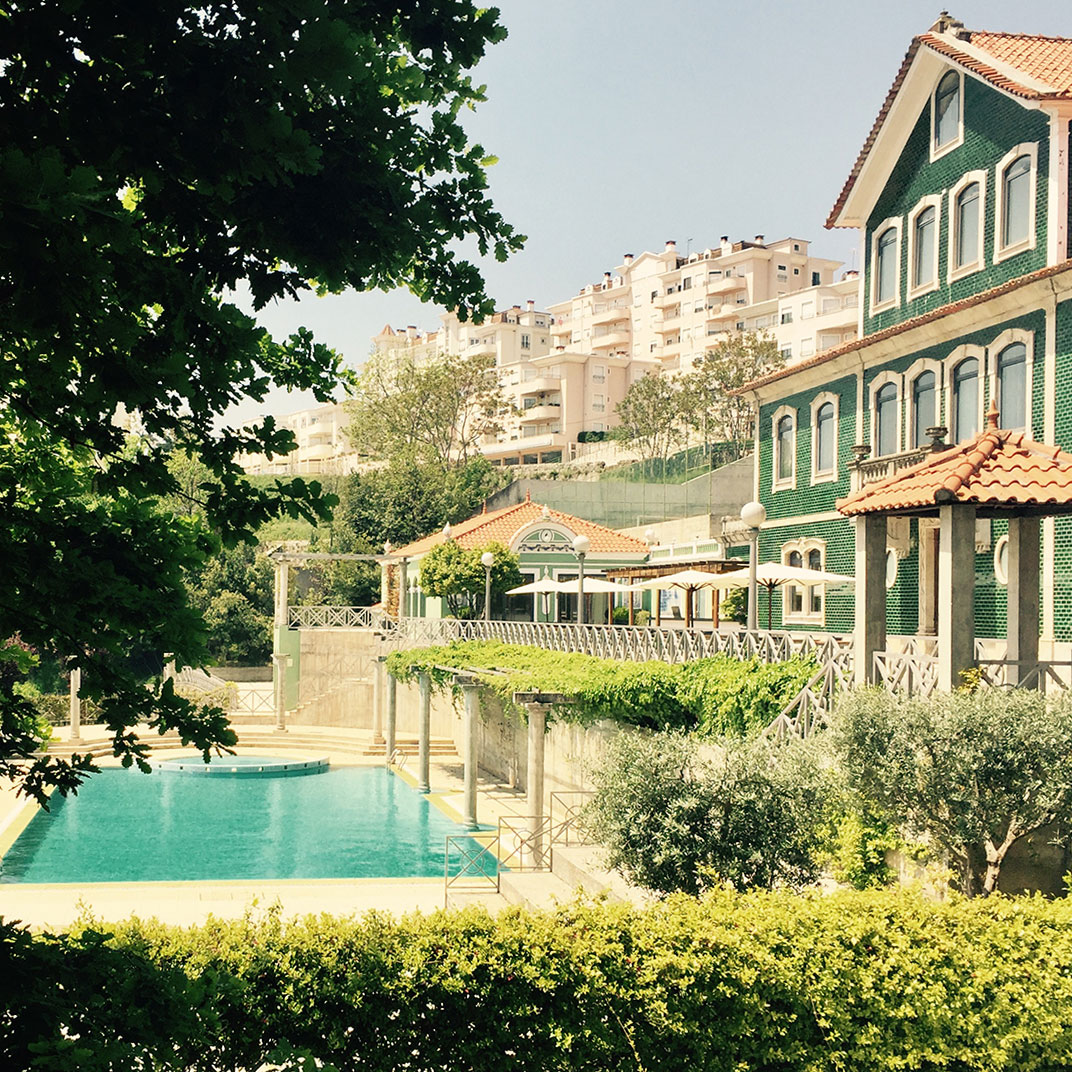
Lamego Hotel & Life
Lisbon
Lamego Hotel & Life leaves open the obvious question: what kind of life? Here, in the Douro, the wine-producing northern region of inland Portugal, the best-case scenario might be a luxury boutique hotel surrounded by orchards and vineyards, with a restaurant that showcases the best of the region’s wine and produce, and a location that places the old pre-Roman city of Lamego, as well as the whole of the Douro Valley, right at your feet. Needless to say, it’s a solid contender for what the ancients might have called “the good life.”

Heritage Avenida Liberdade
Lisbon
The sunset-blue facade of the Heritage hotel is the only original remnant of this 18th-century palace on Lisbon’s Avenida Liberdade; the interiors are unrecognizable, pure contemporary luxury, courtesy of the designer Miguel Câncio Martins, perhaps best known for the interiors of the Buddha Bar in Paris. There’s no oversized religious idol dominating the space here, but there is a certain similarity of style, if you look closely: rich materials, classic references, clean lines and a warm, welcoming palette.
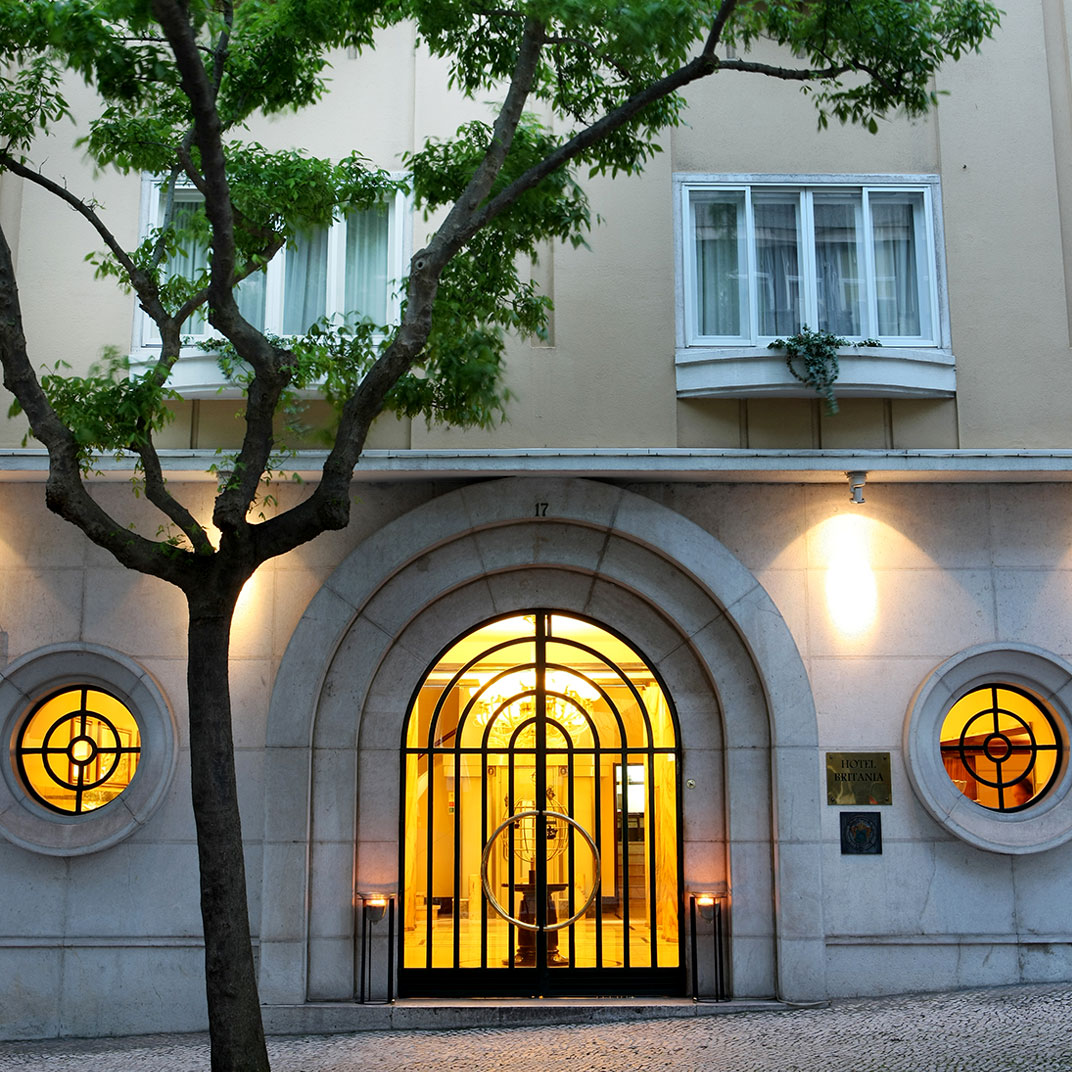
Hotel Britania
Lisbon
Though they’re all outwardly different, the boutique hotels of Lisbon’s Heritage group share a common approach: they’re historic buildings in central locations, heavily renovated, with one eye on contemporary design and the other on historical preservation. And of all of them, the Britânia is at once the most discernibly retro and the most perversely modern — no historic style speaks to today’s eye quite as naturally as Art Deco. And Art Deco the Britânia most certainly is — it’s a 1942 original by Cassiano Branco, and it’s so relentlessly Deco that you almost have to be an enthusiast of parquet floors, black lacquered wood, shiny chrome and white marble in order to properly enjoy it.
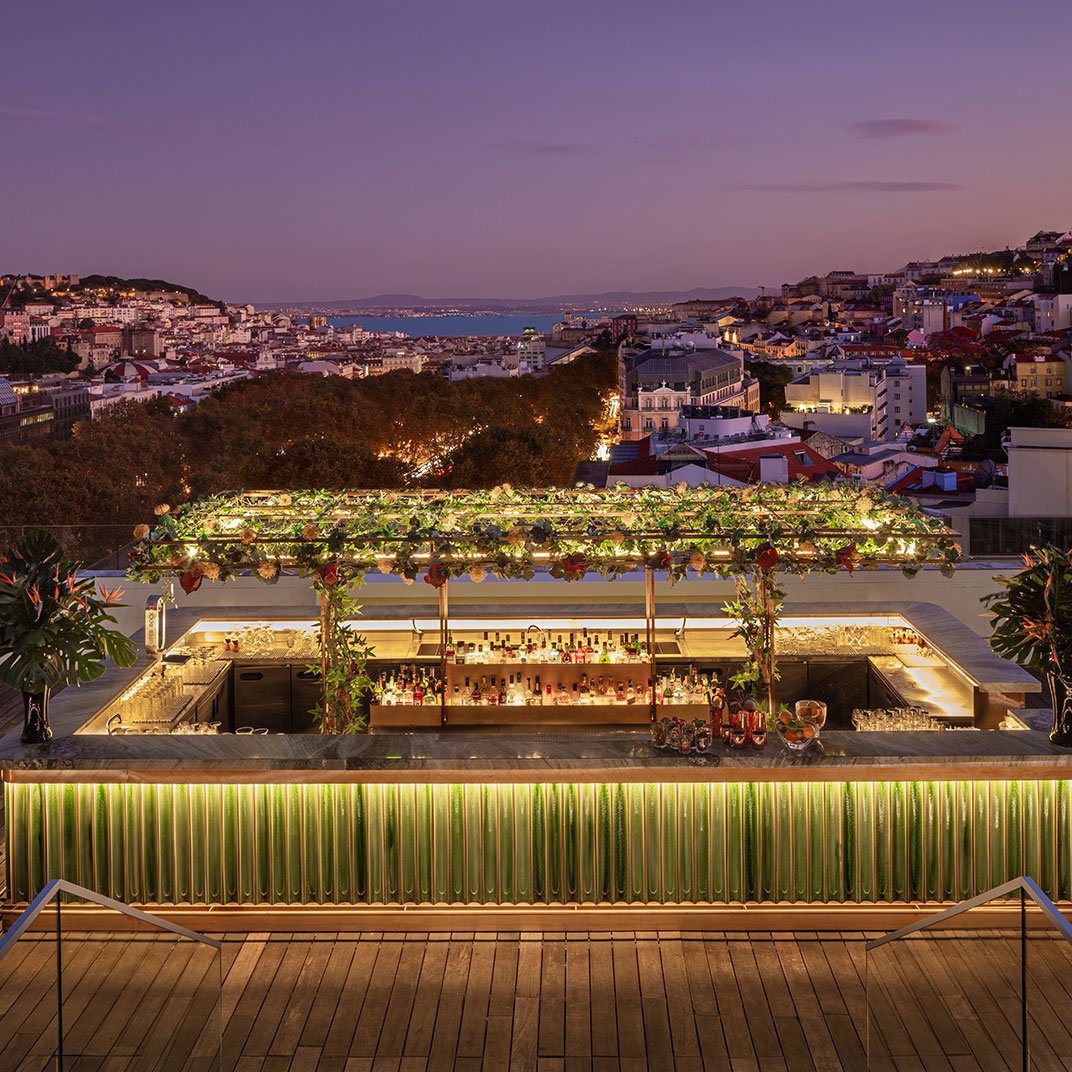
Tivoli Avenida Liberdade Lisboa
Lisbon
Lisbon is all aflutter with new hotels, but spare some attention for a classic: the Tivoli Avenida Liberdade, first established in 1933, is back after a substantial renovation that returns it to the top of its game — the lobby feels like a gallery where the guests are on display, a throwback to the days when a luxury hotel’s lobby was like a substitute town square.
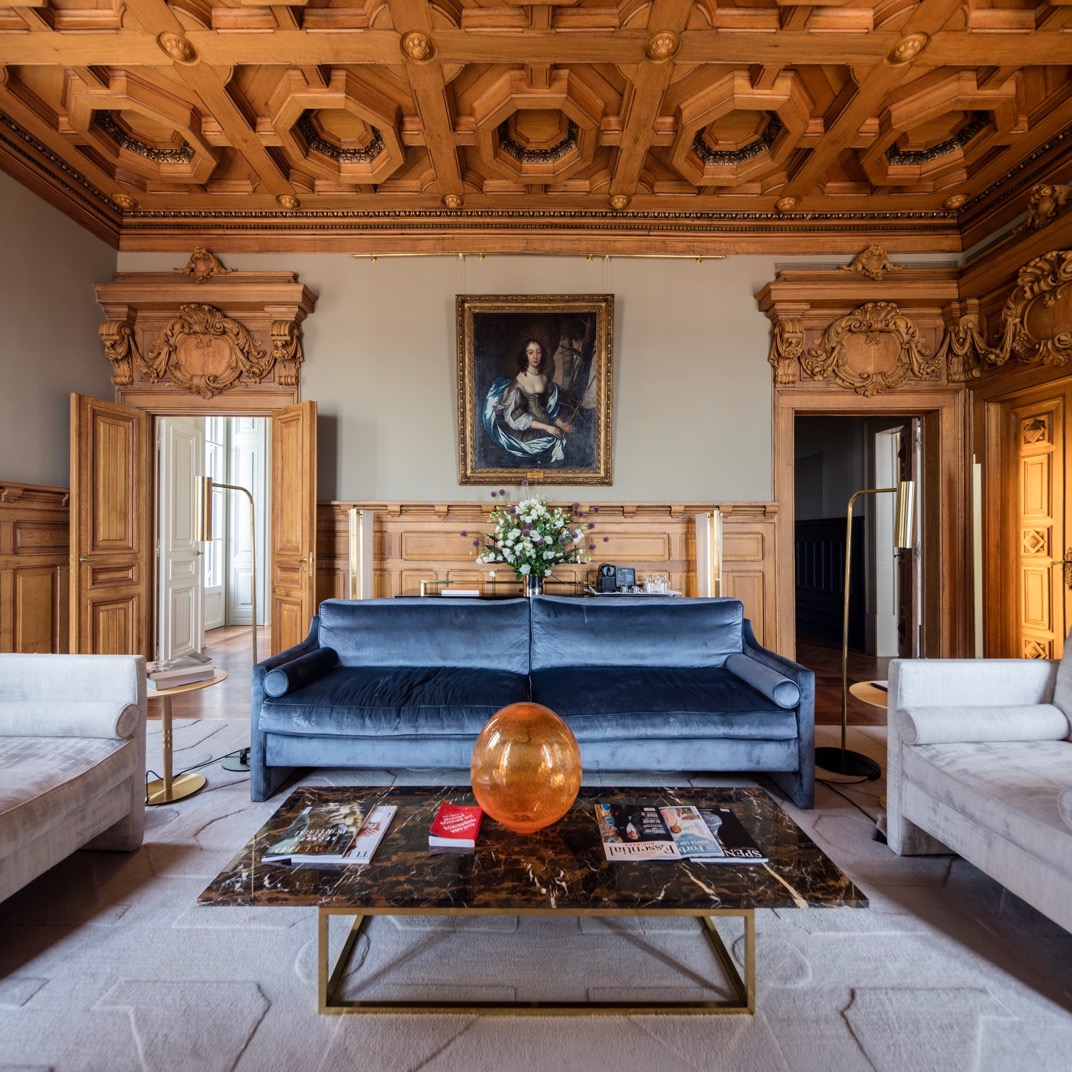
Verride Palácio de Santa Catarina
Lisbon
Suddenly it seems as though every permanent structure in Portugal has been converted into a luxury boutique hotel of one description or another. Even in an increasingly crowded field, though, the Verride Palácio Santa Catarina stands out. This splendid old palace in the blossoming Chiado district dates back to the year 1750, and it’s full of lovingly preserved original architectural detail. But it’s not strictly a by-the-book restoration — architect Teresa Nunes da Ponte has introduced a contrasting line of modern design that harmonizes beautifully with the opulence of the old palace.
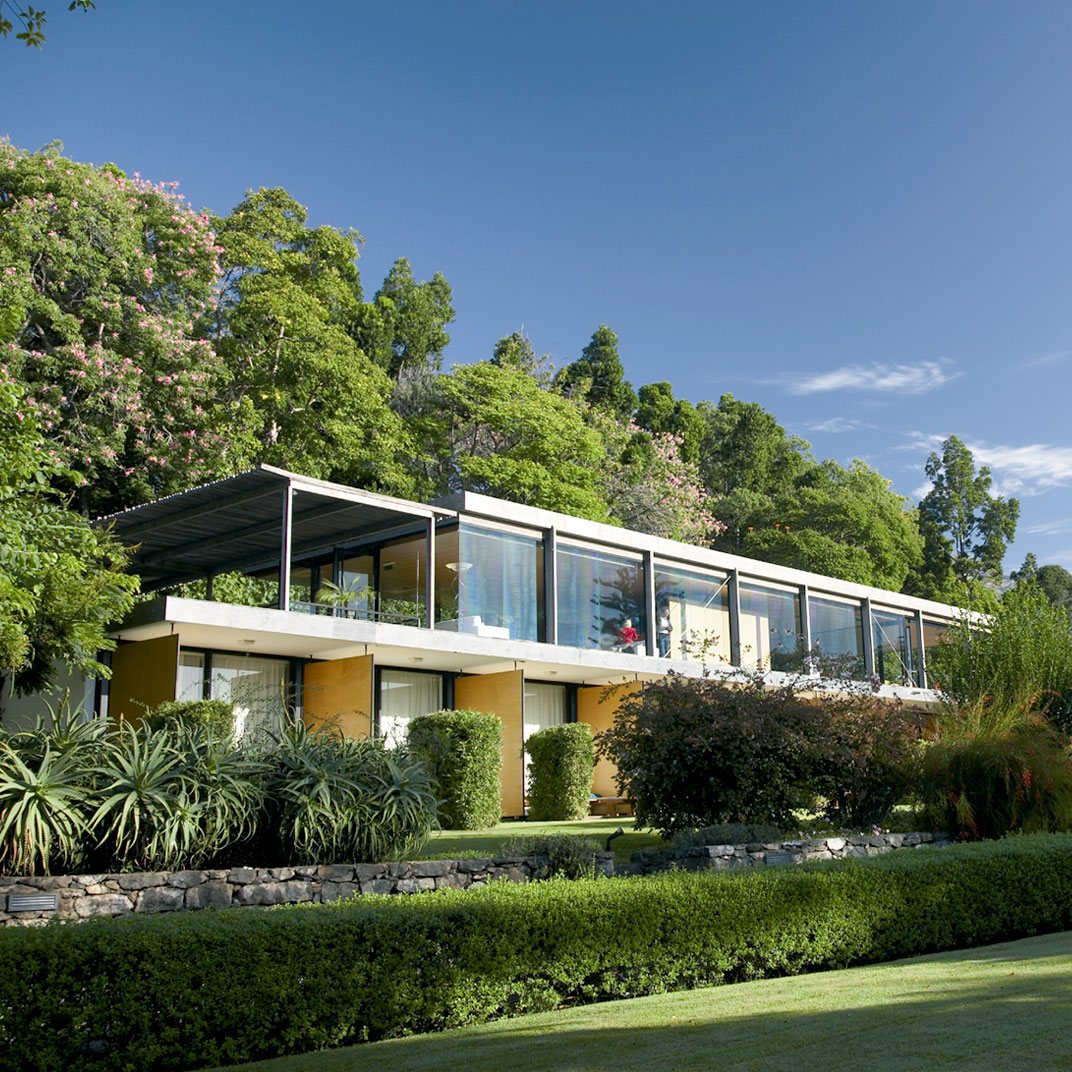
Quinta da Casa Branca
Madeira
Madeira, among certain demographics, is something of a well-kept secret. Lush and subtropical, it’s the sort of place that’s very popular indeed with an older generation of travelers. But its pervasive calm is its greatest asset — if it were heaving discos and all-night debauches you were after, you’d be in Ibiza. If, on the other hand, it’s peace and quiet you’re after, Quinta da Casa Branca might just be the place.
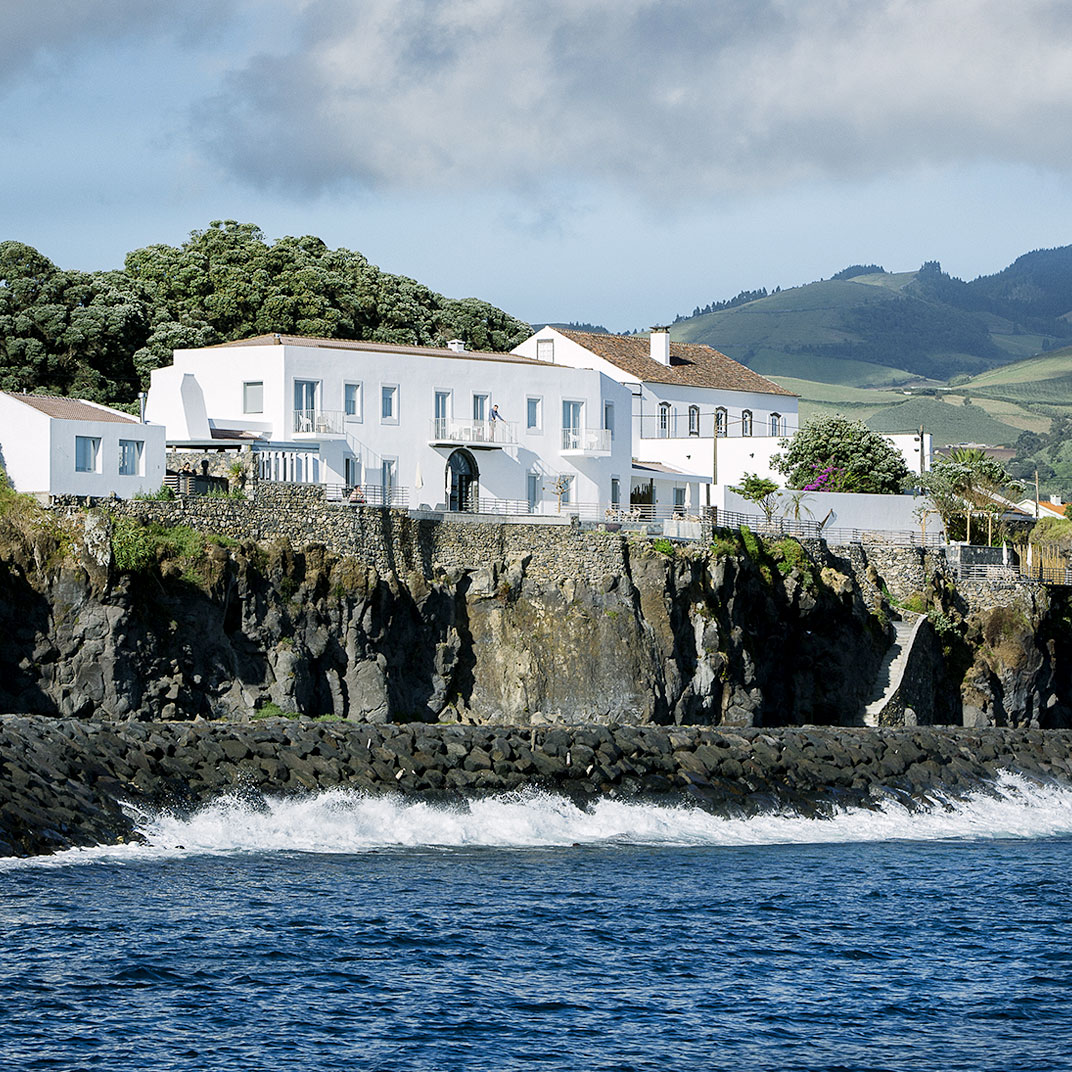
White Exclusive Suite & Villas
Ponta Delgada
Though technically part of Portugal, the Azores are a thousand miles to the west, in the middle of the Atlantic ocean. This volcanic island archipelago is one of the world’s most unique holiday destinations, with its dramatic landscapes and endless sea views. Even São Miguel, the largest of the Azores, is a mere speck of a place, and it’s here that you’ll find White Exclusive Suites and Villas, a boutique hotel whose straightforward name turns out to be entirely apt.
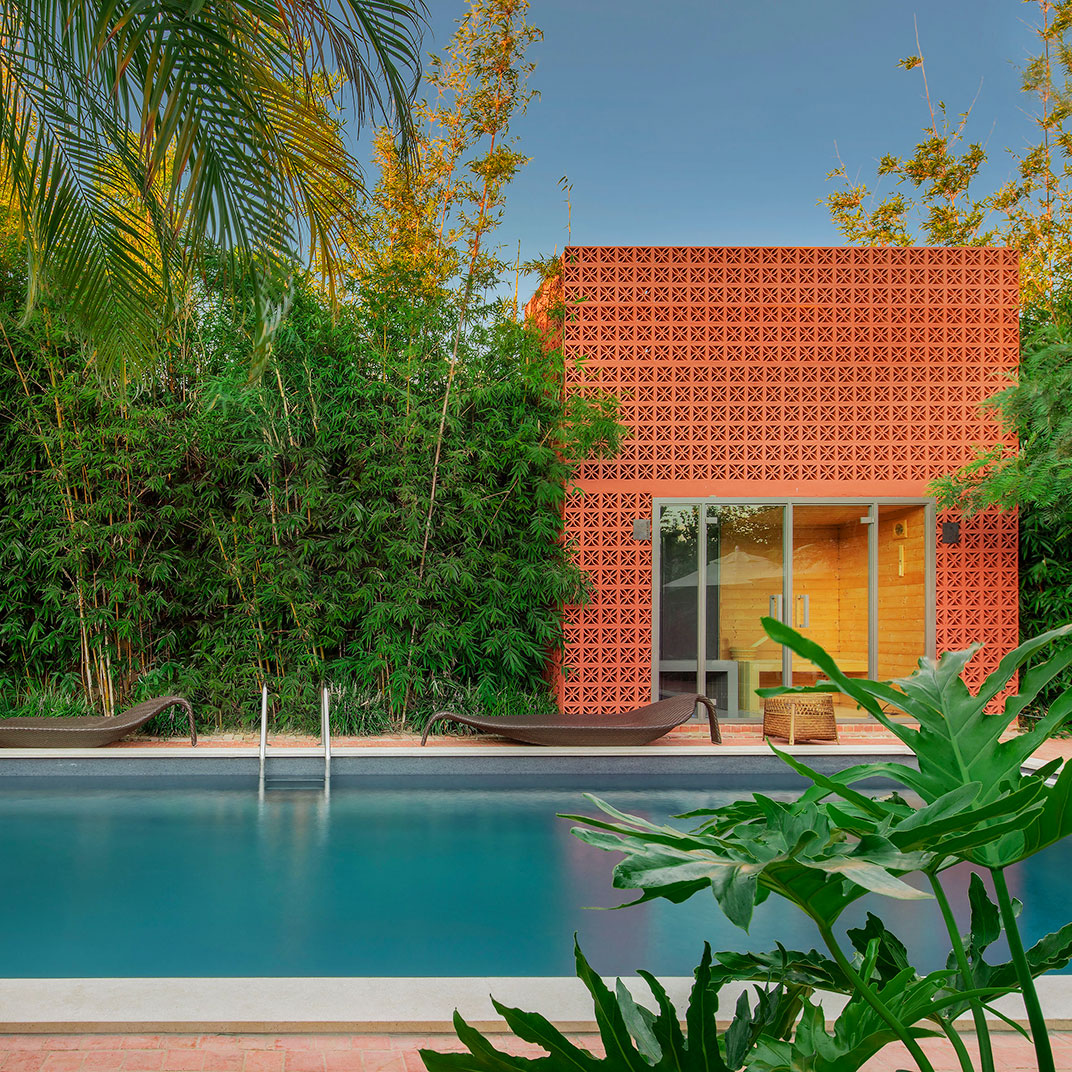
Salvaterra Country House & SPA
Salvaterra de Magos
There may be no country at the moment whose countryside is more packed with exquisite small hotels than that of Portugal. The inland province of Ribatejo, less than an hour’s drive up alongside the Tagus from Lisbon, is the setting for Salvaterra Country House & Spa, a hotel whose name admirably sums up the experience. It’s more a compound than simply a house, surrounded by peaceful gardens, and its suites feel impressively private, opening onto leafy terraces and decorated in a breezy contemporary-rustic style.
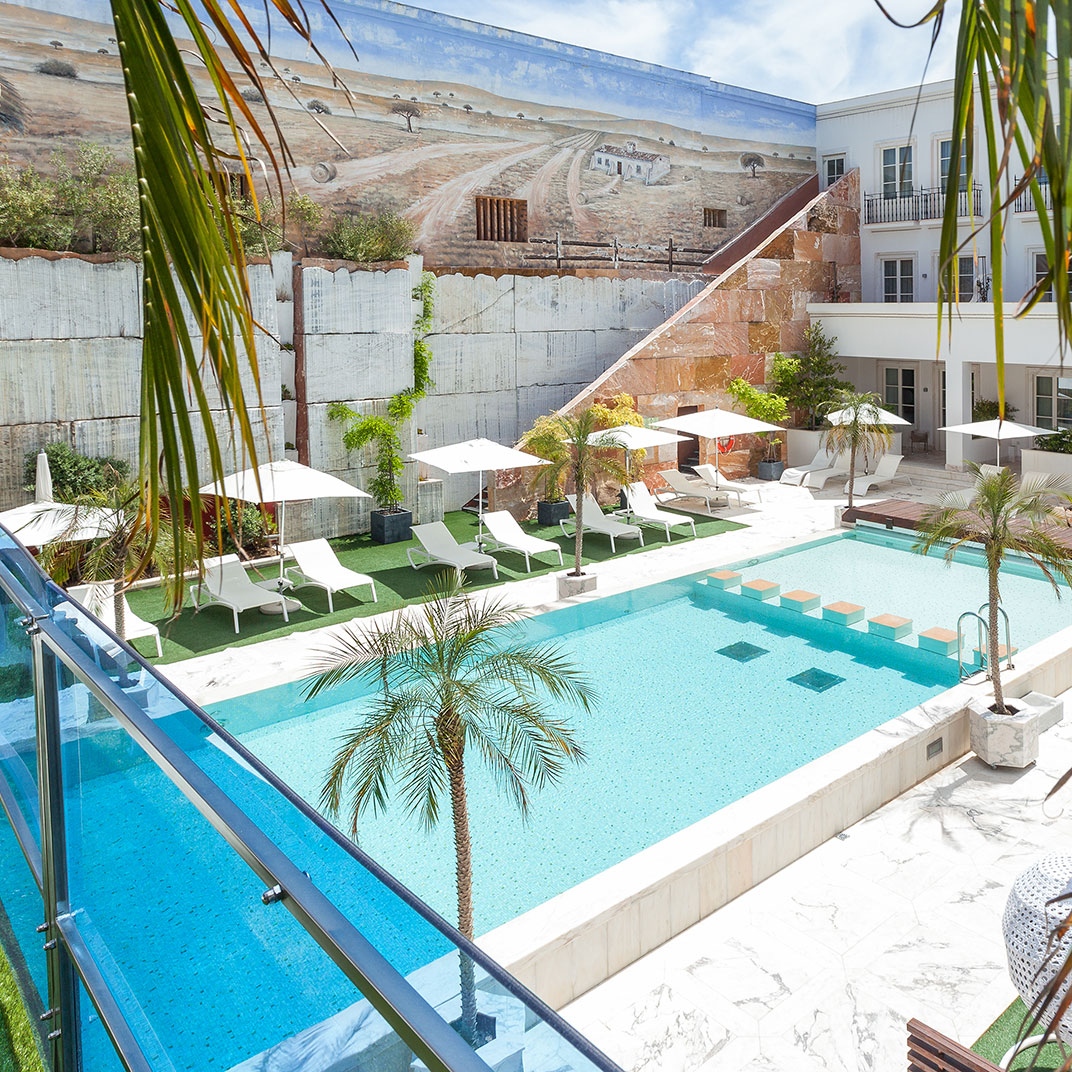
Alentejo Marmoris Hotel & Spa
Vila Viçosa
It seems there’s no part of Portugal that’s left out of the current travel boom. Save a spot on your itinerary for Vila Viçosa, near the Spanish border in the Alentejo region, to the east of Evora. Here you’ll find the Alentejo Marmòris Hotel & Spa, where two distinctive elements combine to create a one-of-a-kind hotel. The first is the architect Miguel Câncio Martins, who’s best known for the Buddha-Bar in Paris. And the second is the material: Vila Viçosa is known for its marble, and the family that owns the Marmòris has been in the business for generations.
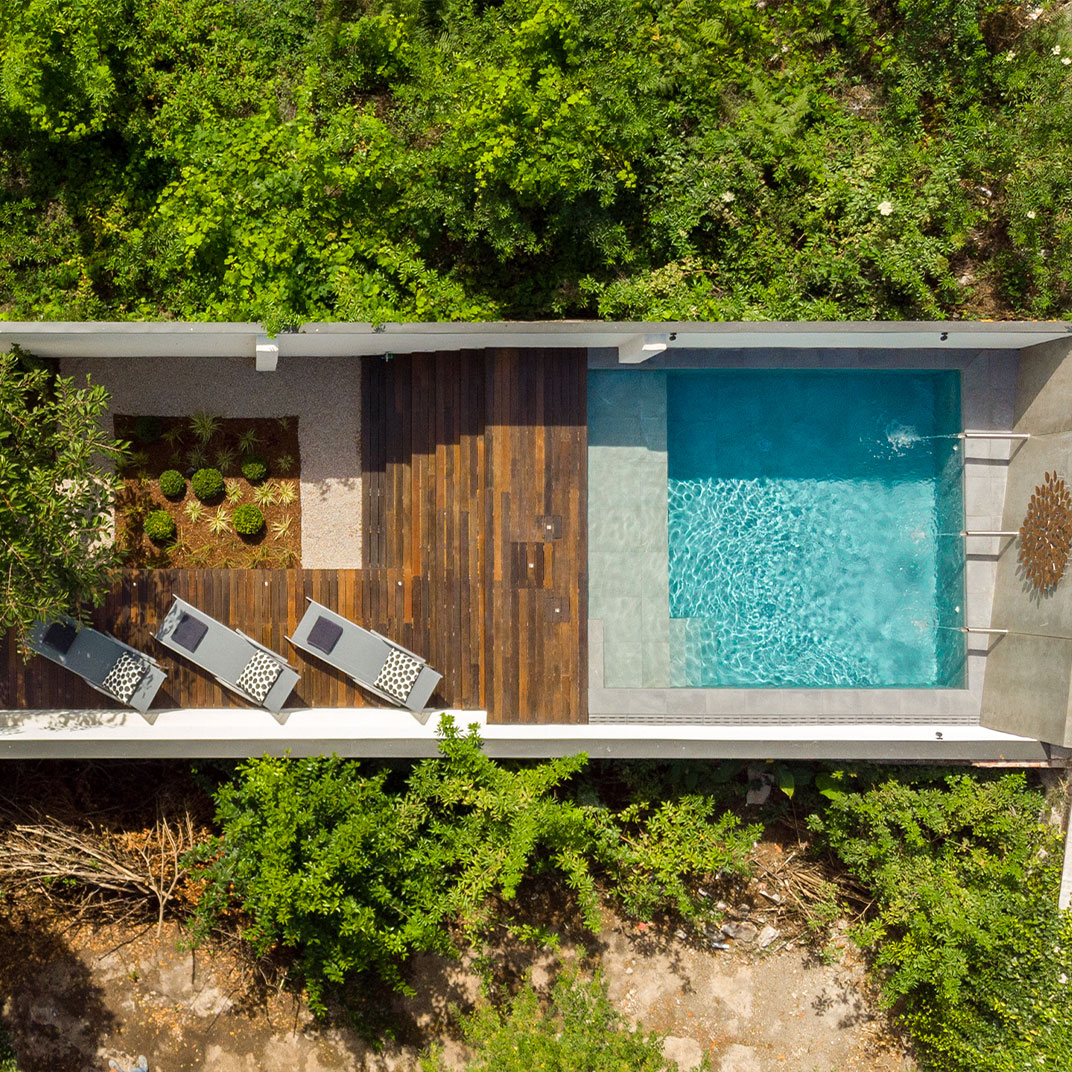
Canto De Luz
Porto
Portugal is positively stuffed with extraordinary hotels, but this one stands out by virtue of its sheer uniqueness: a once-abandoned house in a residential section of Porto, after a very thorough five-year renovation at the hands of its French owners, is now a luxurious little boutique hotel in a style that’s decidedly modern yet as warm and welcoming as anything else in town: the poetically named Canto de Luz.
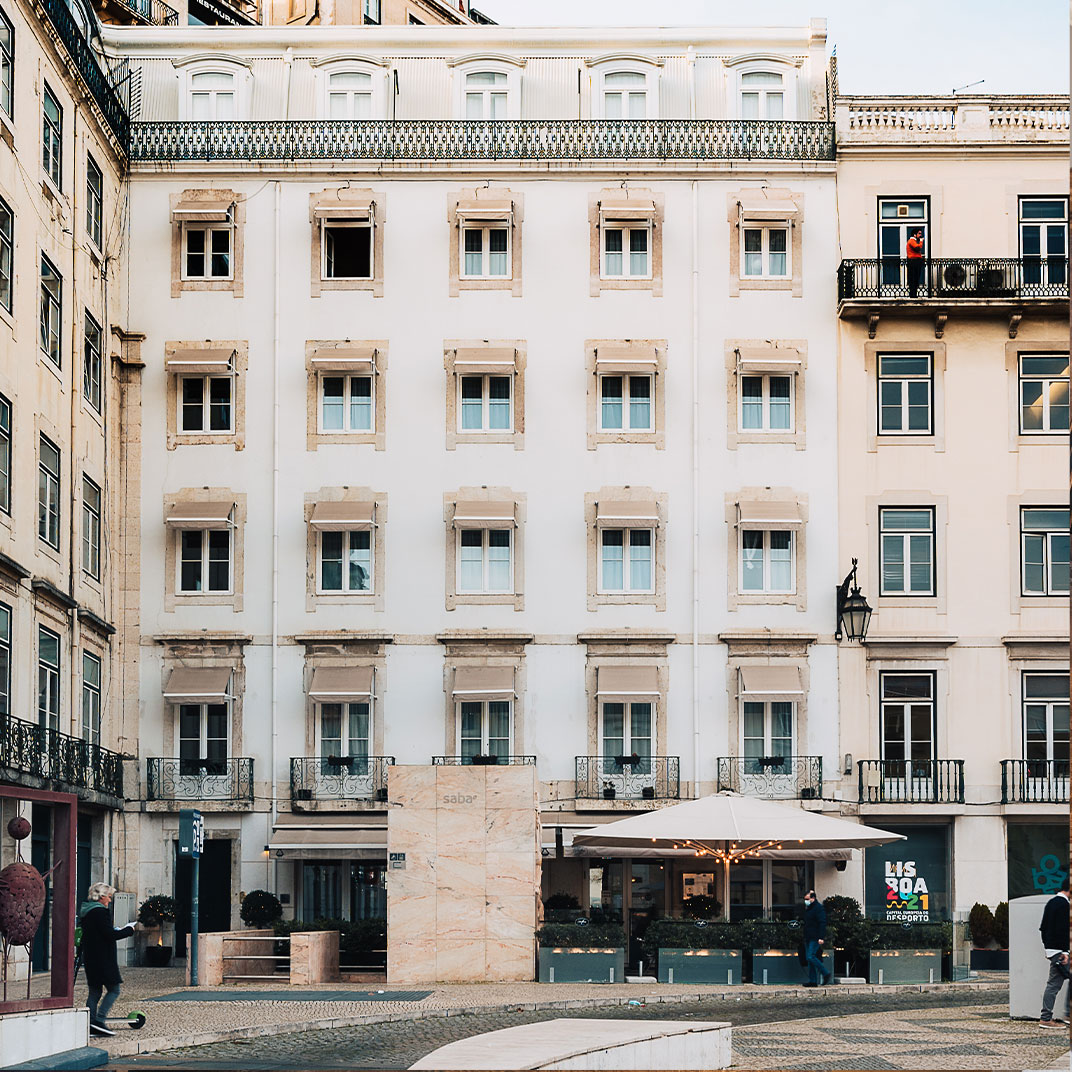
AlmaLusa Baixa/Chiado
Lisbon
If you ever wonder why you’re seeing so many mentions of Portugal in the travel press these days — well, it’s because of hotels like AlmaLusa Baixa/Chiado, a fantastically stylish boutique hotel built in a heritage building that began its life in the 17th century as the city’s arsenal. Simply put, if they keep opening hotels like this, we’re going to keep on writing about them. That’s just how this works.


